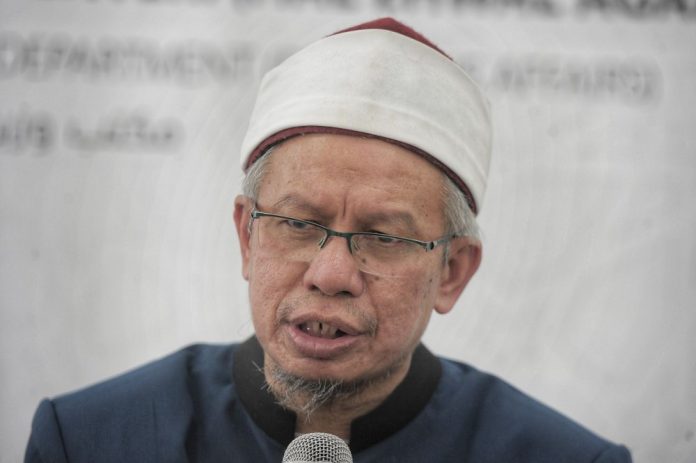.jpg)
KUALA LUMPUR, Dec 29 — Datuk Zulkifli Mohamad Al-Bakri today welcomed the Domestic Trade and Consumer Affairs Ministry’s formation of a legal and halal enforcement committee in the wake of a scandal over meat imports that have been passed off as halal.
“Apart from that, the establishment of a royal commission of inquiry (RCI) to investigate the wrongful use of halal logos for smuggled meat is the best step,” the Islamic affairs minister said in a statement this evening.
He added that the idea has found favour among government officials as well as the Opposition and the public.
Malaysia has been rocked the past week by allegations of a “cartel” importing meat from countries not certified as halal but passing off the products as permissible for Muslim consumption.
The Malay Consultative Council (MPM), a civil organisation, had earlier today accused the Department of Islamic Development Malaysia (Jakim) of dereliction of duty in the issuance of halal certification to meat imports.
MPM was also among those pushing for an RCI into the issue. Others include DAP MP Steven Sim who said the issue went beyond halal and raises serious concerns over the quality and nutritional value of imported food in general as well as regulatory control.
Deputy Domestic Trade and Consumer Affairs Minister Datuk Rosol Wahid also the Dewan Negara earlier today that the government has taken action by freezing the assets of several companies alleged to be involved in the “cartel”, estimated to be worth RM1 million, and impounded 24 rubber stamps of companies as well as 5,000 of Jakim’s halal stickers and 2,428 boxes of frozen meat estimated at RM738,640.
He also indicated that charges will be made in court tomorrow in connection to the case, without elaborating.
Zulkifli echoed Rosol’s remarks refuting the allegations that the cartel had been operating for over 40 years, or that the imports included those haram to Muslims like pork, or were exotic meats like kangaroo and horse.
Zulkifli said records showed one of the companies involved was registered only in 2014 and received its import permit in 2017.
He added that the Chemistry Department’s tests disproved porcine, horse and kangaroo sources in the imported meat content.
The senator also cleared several local food brands of distributing dubious imported meat.
“There is no doubt over the halal status of Allana and Ramly imported meat brands,” he said in his statement this evening.
“Jakim and I have initiated several visits to AlHilal Food Processing Sdn Bhd, Ramly Food Processing Sdn Bhd dan HS Nada Sdn Bhd on December 28 and 29, 2020 for a periodic survey,” he said, explaining that it was part of measures to ensure the quality of the department’s halal certification.
The allegations surrounding Malaysia’s meat import and halal food industry first made headlines on December 21.
Citing unnamed sources, The New Straits Times alleged that a large network had been bringing in non-certified meat from countries like Brazil, Bolivia, Canada, Colombia, Spain and Mexico to a warehouse in Senai, Johor where the products would be repacked with a halal logo.
According to the newspaper, the “cartel” would bribe officials from at least four agencies with sexual favours on top of money, to turn a blind eye to its operations.
The only countries that have been certified by the Malaysian authorities for the import of halal meat are Australia, Argentina, Brazil, India, South Africa, Pakistan, Japan, New Zealand and the United States.
Certification is handled by Jakim and the Veterinary Services Department.
Other government agencies that manage the supplies of imported food are the Malaysian Quarantine and Inspection Services Department, Customs Department and port police.


